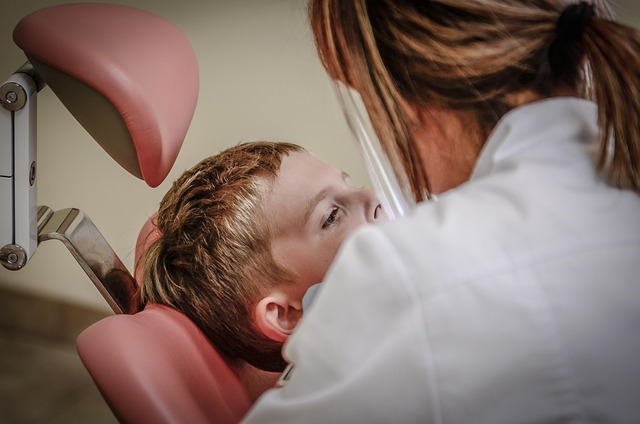Genetic factors and lifestyle choices impact egg quality, affecting fertility in women with poor ovarian response (POR). Egg donation from younger donors offers a solution for POR caused by aging, genetic mutations, PCOS, POI, or unhealthy habits. Targeted interventions, including specialized care and ART, can enhance fertility outcomes for these individuals.
Uncovering the mysteries behind poor egg quality and fertility struggles is essential for women seeking conception. This comprehensive guide explores diverse factors impacting reproductive success, offering insights into genetic predispositions, age-related changes, lifestyle choices, and medical conditions. Understanding these causes is pivotal, especially for women considering egg donation as a path to parenthood, particularly with poor ovarian response. By delving into these aspects, we aim to empower individuals to navigate their fertility journey with knowledge and hope.
Genetic Factors and Egg Quality Decline
Genetic factors play a significant role in determining egg quality and overall fertility. Variations in genes can influence the development and maturation of oocytes, leading to a decline in their health and viability. This is particularly relevant for women with poor ovarian response (POR), where the ovaries produce fewer or lower-quality eggs as they age.
Research suggests that certain genetic mutations and polymorphisms are associated with reduced egg quality. For instance, variations in genes involved in oocyte maturation, DNA repair, and apoptosis regulation can impact the overall health of eggs. These genetic predispositions may contribute to an increased risk of aneuploidy, where the eggs have an abnormal number of chromosomes, which is a common cause of miscarriages and reproductive failures. Understanding these genetic influences opens up possibilities for tailored interventions, such as exploring egg donation programs as an option for women facing fertility challenges due to poor ovarian response.
Age-Related Changes in Ovarian Function
As a woman ages, her ovaries undergo natural changes that can impact fertility and egg quality. This phenomenon is commonly referred to as age-related decline in ovarian function. After the age of 35, it becomes increasingly challenging for women to conceive naturally due to several factors. One significant change is the reduction in the number and quality of eggs produced by the ovaries. With each menstrual cycle, the remaining eggs become older, leading to a decrease in their viability and chromosomal stability. This deterioration can result in an increased risk of miscarriage and the birth of babies with genetic abnormalities.
Additionally, age-related changes in hormone levels play a crucial role. Hormones like estrogen and follicle-stimulating hormone (FSH) may not function optimally, affecting ovulation and egg development. These alterations can make it harder for women to achieve and maintain pregnancy. For those facing fertility challenges due to poor ovarian response, exploring options like egg donation can be a promising solution. This procedure offers hope by providing high-quality eggs from younger donors, thereby increasing the chances of successful conception and healthy pregnancies in women with age-related ovarian changes.
Lifestyle Influences on Fertility Challenges
Lifestyle choices and habits can significantly impact fertility, often affecting egg quality and overall reproductive health. In today’s fast-paced world, many individuals face challenges due to their daily routines. For instance, stress management is crucial; chronic stress can disrupt hormonal balance, influencing ovulatory function. Similarly, unhealthy dietary patterns may contribute to poor egg quality. Processed foods high in sugars and unhealthy fats can negatively impact reproductive outcomes.
Additionally, excessive exercise or sedentary lifestyles can also play a role. While regular physical activity is beneficial for overall health, extreme cases of intense training might interfere with menstrual cycles. On the other hand, being overweight or obese poses risks too, as it increases the risk of polycystic ovary syndrome (PCOS), which is associated with irregular periods and reduced fertility. Considering these factors, some women may find egg donation from young donors a suitable solution when facing poor ovarian response due to these lifestyle influences.
Medical Conditions Affecting Egg Donation Potential
Women with poor ovarian response, often due to medical conditions like polycystic ovary syndrome (PCOS) or premature ovarian insufficiency (POI), face significant challenges when considering egg donation for fertility treatments. These conditions can disrupt the normal hormonal balance and ovulatory function, directly impacting egg quality. For instance, PCOS is characterized by an imbalance of hormones, leading to the development of cysts on the ovaries, which can hinder regular ovulation and egg maturation. POI, on the other hand, marks the early onset of menopause, resulting in low hormone levels and reduced ovarian reserve.
Both conditions may require specialized care, including medication or assisted reproductive technologies (ART), to stimulate ovulation and improve egg donation potential. Regular monitoring and personalized treatment plans are crucial to enhancing fertility outcomes for women dealing with these medical challenges. Understanding the underlying causes and seeking timely medical intervention can significantly improve the chances of successful egg donation processes.
Poor egg quality and fertility challenges can arise from a complex interplay of genetic factors, age-related changes, lifestyle influences, and medical conditions. By understanding these causes, women facing difficulties conceiving can make informed decisions about their treatment options, such as exploring egg donation for those with poor ovarian response. Adopting healthy lifestyles and managing underlying medical issues can also improve fertility potential, emphasizing the importance of comprehensive care tailored to each individual’s unique situation.
